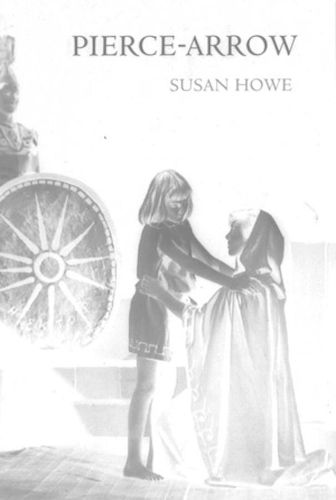Readings Newsletter
Become a Readings Member to make your shopping experience even easier.
Sign in or sign up for free!
You’re not far away from qualifying for FREE standard shipping within Australia
You’ve qualified for FREE standard shipping within Australia
The cart is loading…






Pierce-Arrow, Susan Howe’s newest book of poems, takes as its point of departure the figure of Charles S. Peirce, the allusive nineteenth-century philosopher-scientist and founder of pragmatism, a man always on the periphery of the academic and social establishment yet intimately conjoined with them by birth and upbringing. Through Peirce and his wife Juliette, a lady of shadowy antecedents, Howe creates an intriguing nexus that explores the darker, melancholy sides of the fin-de-siecle Anglo-American intelligentsia. George Meredith and his wife Mary Ellen, Swinburne and his companion Theodore Watts-Dunton, are among those who also find a place in the three long poem-sequences that comprise the book. Howe’s historical linkings, resonant with the sorrows of love and loss and the tragedies of war, create a compelling canvas of associations. It’s the blanks and gaps, she says, that to me actually represent what poetry is-the connections between seemingly unconnected things-as if there is a place and might be a map to thought, when we know there is not.
$9.00 standard shipping within Australia
FREE standard shipping within Australia for orders over $100.00
Express & International shipping calculated at checkout
Pierce-Arrow, Susan Howe’s newest book of poems, takes as its point of departure the figure of Charles S. Peirce, the allusive nineteenth-century philosopher-scientist and founder of pragmatism, a man always on the periphery of the academic and social establishment yet intimately conjoined with them by birth and upbringing. Through Peirce and his wife Juliette, a lady of shadowy antecedents, Howe creates an intriguing nexus that explores the darker, melancholy sides of the fin-de-siecle Anglo-American intelligentsia. George Meredith and his wife Mary Ellen, Swinburne and his companion Theodore Watts-Dunton, are among those who also find a place in the three long poem-sequences that comprise the book. Howe’s historical linkings, resonant with the sorrows of love and loss and the tragedies of war, create a compelling canvas of associations. It’s the blanks and gaps, she says, that to me actually represent what poetry is-the connections between seemingly unconnected things-as if there is a place and might be a map to thought, when we know there is not.